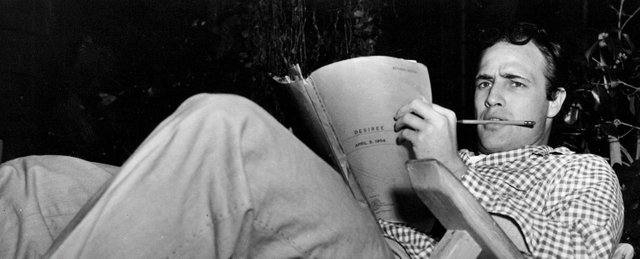4 Bullet proof methods to fix your story or script if it sucks!
You've locked yourself in your room for months. Painstakingly you've worked day and night writing and re-writing to create the next "The Godfather" script. So many sleepless nights, so many drafts and your dustbin filled with torn pieces of paper which never made it to the script. Finally, the day comes. Your script is in your hands, ready to catapult you into the big leagues - but then after your first script read to a producer or an agent. They say IT SUCKS!

When they say this you'll feel a sense of rebellion. You'll think they are all wrong and your script is still a masterpiece. But, slowly with time you'll realize they were in fact right. You'll start cursing yourself, how did you not see those plot holes? how could you not see that mistake? This post is for beginner or amateur writers and film maker, like me. I faced this problem quite a few times. But, some times producers can also be wrong, so if you are seasoned writer you can skip this post. This is a beginners point of view.

If I had knew this methods a few years ago. A lot of my time could have been saved. Let's start
A fundamental mistake we amateurs do while writing:
Before I tell you the methods, lets look into a mistake almost all the writers do when they start. The mistake we do is We tell the stories we written to the wrong people. When you finish writing you'll be having an excitement to narrate it to anyone who is in front of you to get their feedback. But, this could be fatal. I know, many of you might disagree to it. Because, how else would you know if the story is good or bad.

Here's why I don't like this. When you get a reasonable feedback from the person you narrate the story is good. But, if you get a wrong feedback its a disaster. If the person is your close friend or family to whom you are narrating the script to, they will most likely not going to tell that your story or the script is bad. When this happens, you relax and you stop working on the script. There's a fake sense of completion that occurs to you when this happens.
And there's no right way to tell who is the right person to give you good feedback. Even, the most seasoned writers sometimes fall into this trap which leads them to make uncooked stories. So, try to avoid your friends or family when you want to narrate your new story. I will tell you how you can get good feedback later in this post.
Method #1 - Take a break and read :
When you write a story for a long period of time, your brain will get tired and lose its judgmental skills. During this stage, what ever you write will look good to you, because your brain is too tired to tell if the story is good or bad. This will again lead to bad and uncooked stories. I experience this most of the time, a piece of writing will look fantastic on the day I wrote it, but after a few days the same thing looks like shit. The solution is very simple. Take a break after you finished your writing. Just for few days don't think about your story. Its gonna be hard, but not impossible. Go out for a walk, listen to some music, watch a good movie, meet your friends, rob a bank, but try not think about your story that you've written.

After a week or so, come back and read your own script or story. You will be able to find plenty of flaws in it. This method requires an amount of patience, but its worth it. You'll be surprised after looking at scene that you liked a week ago, is not working.
This technique is not only used by writers, but also directors. Martin Scorsese usually goes on a vacation after his shoot trying to forget whatever he has made. When he comes back, the movie will be edited completely and he can rectify the mistakes after watching it in almost a layman point of view.
So, take breaks and relax. Take your time, Christopher Nolan took 10 years to write Inception.
Method #2 - Act it out:
If you are writing a script for a movie or a play. It is important to make sure that all the scenes are working properly and all the dialogue are also working. This is an old method practiced by many writer out there. Its pretty simple. Just lock yourself inside a room and act it out. Like a mono act feel the surroundings, read the dialogues of the actors and play it yourself, imagine you are the actor and act. Nobody is looking at you and you can push it to the limits. But, mind you this method is very addictive. Once you get a hang of it you'll lock yourself everyday, its crazy.

Some of you might find this silly, but it has helped me tremendously. Very effective for dialogues, you can correct the mistakes and make your dialogues flow even better. The intense scenes of the script can be made much more powerful.
Aaron Sorkin, writer who wrote Social-Network and Steve Jobs. Once, when doing this in the bathroom he got so involved that he fell on the sink and injured his head (information from his THR interview).
Method #3 - Read and read till you get bored of your own story:
Re-reading is one of the best ways to find flaws in your writing works. Read your script as many times as possible. Read it till you get bored of it. It is easy to believe that you know your script, because you are the one who wrote it. But, most of the time it isn't the case. You may have heard this before, but still people tend to not read their scripts for some reason. You should read till the story gets into your veins.
Well the idea behind this is very simple. It is easy to read a good story over and over again, than a bad one. If the story is bad you won't feel like reading again. When you don't feel like reading your script after a few reads it means your story may not be engaging enough. You can analyse at which part you feel bored and you can re write those areas to make it more engaging.

Quentin Tarantino reads his scripts thousands of times before it gets made to films.
Method #4 - Find a reader:
As I told before it is really bad to get a feedback from the wrong person. Then, how to find those right persons? Any friend or a family who has the habit of reading novels and books are really good for getting feedback. Narrating a story needs complete attention of the person whom you are narrating to. But, you will not be able to get complete attention no-matter how hard you try. Their phone ring, they'll get distracted or they might just fall asleep.

Reading requires an amount of commitment for the layman, this helps you to get quality feedback. You can use these to re write the script to make it better. Another point of view is really important in writing, because it can help you stop wasting time on something which is not worth it.Even better if you don't tell that you have written it, to get more unbiased. I have many good friends who are ready to read and give me good feedback. I also noticed girls are better at criticizing than boys, for some reason. So, run to your nearest reader girl with your script.
Before I end this post let me tell you. Writing is an instinctive process, you are required to listen to your gut-feeling while writing. I know there are talented writers who can produce great works of writing without using these above methods. But, this is what helped me the most, as a beginner.
Thank you for reading, comment below for any types of questions or opinions.
--------------------------------------------------------------------------------------------------------------------------------
You may also like,
Dunkirk is not a movie its an experience - How I survived Dunkirk
5 major problems your actors will give you while shooting your first indie feature film.
12 Angry men - How a movie changed law in The Great Britain
its worth reading upvoted you
Thank you @needhunt
Nice one. I wonder how long u took to write this great tips! Thank you anyway. Have a great day!! Followed too
Thank you @killuminatic , I write my article in a small notebook and work on it till its ready to go on my blog. :)
@nandan
Beautiful writeup!Thanks for sharing.
Thanks you @qagiri